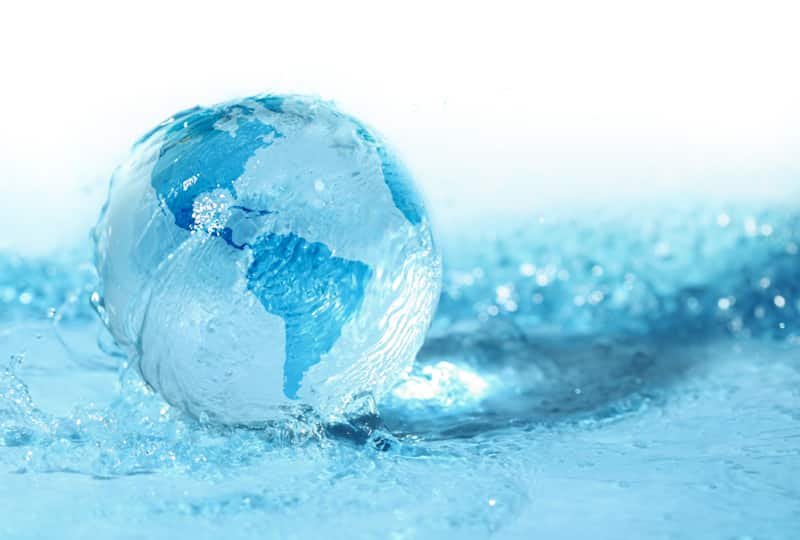
water & globe
“Can we afford clean water? Can we afford rivers and lakes and streams and oceans which continue to make possible life on this planet? Can we afford life itself? Those questions were never asked as we destroyed the waters of our nation, and they deserve no answers as we finally move to restore and renew them. These questions answer themselves.”
There are about 1.5 billion cubic kilometres of water on Earth – that's 1.5 billion trillion litres, or 800 trillion Olympic swimming pools.
(source: Buzzfeed.com)
In Africa alone, women spend 40 billion hours a year walking for water.
(source: Charity: Water)
All the water on Earth arrived in comets and asteroids. It happened between 4.5 billion and 3.8 billion years ago, a period called the Late Heavy Bombardment.
(source: Buzzfeed.com)
If all that water was evenly spread over the Earth's surface it would have a depth of 3,700 metres.
(source: Buzzfeed.com)
Climate change is altering patterns of weather and water around the world, causing shortages and droughts in some areas and floods in others. At the current consumption rate, this situation will only get worse. By 2025, two-thirds of the world's population may face water shortages.
(source: World Wildlife Fund)
Today, only 1 % of the world’s fresh water is easily accessible to humans.
(source: National Geographic)
Just 33% of what the world spends on bottled water every year would comfortably take care of water needs of every individual in this world – meaning clean water for the 780 million without it.
(source: Blue Planet Network)
1.2 billion people lack access to safe drinking. Over half of the world’s wetlands have vanished. Rivers, lakes and aquifers are drying up and becoming too polluted for human consumption. Climate change has altered weather patterns, wreaking havoc on drought and flood conditions around the world.
(source: World Wildlife Fund)
Globally, at least 2 billion people use a drinking water source contaminated with faeces.
(source: World Health Organization)
The greatest causes of stress on the world’s water systems are pollution, agriculture (which uses 70% of the world’s accessible freshwater) and population growth.
(source: World Wildlife Fund)
The biggest known cloud of water vapour was discovered by Nasa scientists around a black hole 12 billion light years from Earth. There is 140 trillion times as much water in it as all the water in the world's oceans.
(source: Buzzfeed.com)
Every 90 seconds a child dies of a water-related disease.
(source: water.org)
Agriculture accounts for 70% of the world's fresh water use – which means water shortage also leads to worsening food insecurity, which is defined as insufficient access to affordable, nutritious food. How prevalent is food insecurity? According to the United Nations, one in nine people worldwide suffer from chronic undernourishment.
(source: Globe & Mail)
The global water crisis impacts 1 in 10 people on the planet today. Plus, 1 in 4 lack access to a toilet, a critical element to overall health.
(source: washdata.org)
780 million people lack access to an improved water source for daily water application and drinking — approximately 1 in 9 people.
(source: World Health Organization)
Though we don’t have the correct numbers in hand, this is what scientists say – the total number of stars in observable universe is same as the total number of H2O molecule you will find in 10 drops of water.
(source: FactLegend.com)
While 3% of the world’s water is fresh water, less than 1% of the Earth’s water is available for drinking, sanitation and freshwater species.
(source: National Geographic)
Waterborne diseases kill more people every year than all forms of violence, including war. 43% of those deaths are children under five years old. Access to clean water and basic sanitation can save around 16,000 lives every week.
(source: Charity: Water)
